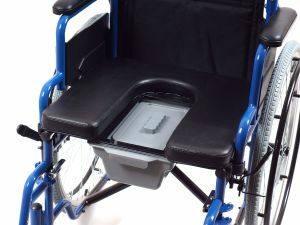Scientific editor: Strokina OA, therapist, doctor of functional diagnostics.
November, 2018.
The syndrome of early ventricular repolarization (SRRZH) - is a medical term that includes only the ECG changes without the typical external symptoms. It is believed that SRRZH - version of the rules and does not represent a threat to the life of the patient.
Recently, however, this syndrome were treated with suspicion. It is distributed widely and is found in 2-8% of healthy people. The older a person becomes, the less chance of finding him SRRZH, this is due to the emergence of increasing age other cardiac problems, similar in electrocardiographic signs.
The most common syndrome of early ventricular repolarization is diagnosed in young men active in sports, men, leading a sedentary lifestyle, and those with dark skin (Africans, Asians and Hispanics).
Causes
The exact causes are not established SRRZH today. However, it identified a number of factors that contribute to the repolarization syndrome:
- taking certain medications, such as a2-agonists (clonidine);
- familial hyperlipidaemia (excessive amount of fat in the blood);
- connective tissue dysplasia (patients with SRRZH increasingly finding its symptoms: hypermobility of joints, "spidery" fingers mitral valve prolapse);
- hypertrophic cardiomyopathy.
In addition, this anomaly is often diagnosed in people with congenital and acquired heart diseases and the presence of congenital abnormalities of cardiac conduction system.
Also not ruled out the genetic nature of the disease (there are certain genes that are responsible for the occurrence of SRRZH).
Kinds
There are two options SRRZH:
- without lesions of the cardiovascular and other systems;
- with the involvement of the cardiovascular and other systems.
In terms of nature of the flow SRRZH distinguish between transient and permanent.
ECG-signs of the doctor localization AM Skarabahaty proposed the following classification:
- Type 1 - with a predominance of symptoms in leads V1-V2;
- Type 2 - with predominance in leads V4-V6;
- Type 3 (Intermediate) - no signs predominance in any leads.
signs SRRZH
Characteristic clinical signs of early ventricular repolarization syndrome does not exist. There are only specific ECG changes:
- changes in ST segment and T wave;
- in a number of branches ST segment elevation above isolines 1-2-3 mm;
- ST segment elevation often begins after a burr;
- ST segment has a rounded shape and passes directly into the high positive T-prong;
- ST segment convexity facing downwards;
- dedendum T widely.
Diagnostics
Since this syndrome is electrocardiographic phenomenon, it can be set only at a specific examination:
- ECG;
-
ultrasound of the heart (Echocardiography)
- stress echocardiography (for violation of the contractility of the ventricles)
- resting echocardiography;
- Holter monitoring during the day;
- electrophysiological study.
In addition, the test was carried out on ergometer or treadmill: after exercise heart rate increases, and ECG signs SRRZH disappear.
Use sample with potassium: after receiving the potassium chloride panangina ritmokora or not less than 2 grams of the severity of signs repolarization ECG syndrome amplified.
Test with isoproterenol and atropine is not used because of severe side effects.
It is important to differentiate and SRRZH myocardial infarction, pericarditis, Brugada syndrome. To this end, a differential diagnosis is carried out.
Treatment of the syndrome of early ventricular repolarization
Specific treatment repolarization syndrome is not required. The only thing that is offered to the patient - this observation by a cardiologist.
However, a person with SRRZH necessary to eliminate the use of alcohol and intense exercise, so as not to provoke an attack of tachycardia.
In some cases, produce additional radio frequency ablation beam invasive method (catheter is brought to the place of the beam and destroys it).
Sometimes used energotropic therapy (group B vitamins, carnitine, phosphorus and magnesium preparations, mexidol kudesan), antiarrhythmics (amiodarone).
Important! The patient should keep all previous ECG that is required to rule out the diagnosis of myocardial infarction in case of pain in the heart.
Complications and prognosis
SRRZH can cause any of the following complications:
- Sinus bradycardia and tachycardia;
- atrial arrhythmia;
- beats;
- heart block;
- paroxysmal tachycardia;
- coronary heart disease.
Forecast of development of favorable SRRZH. It is believed that in 28% of cases, it increases the risk of death from cardiac causes, but many researchers believe that the probability of death at SRRZH much lower than when smoking, alcohol abuse and excessive enthusiasm "heavy" food.
sources:
- Shulenin SN Fighters SA The clinical significance of the syndrome of early ventricular repolarization, an algorithm of patient examination. - Medical emergency conditions №1 (48) 2013
- Vatutin NT, Kalinkin NV The syndrome of early ventricular repolarization. - Abstract physician №61, 2011.



